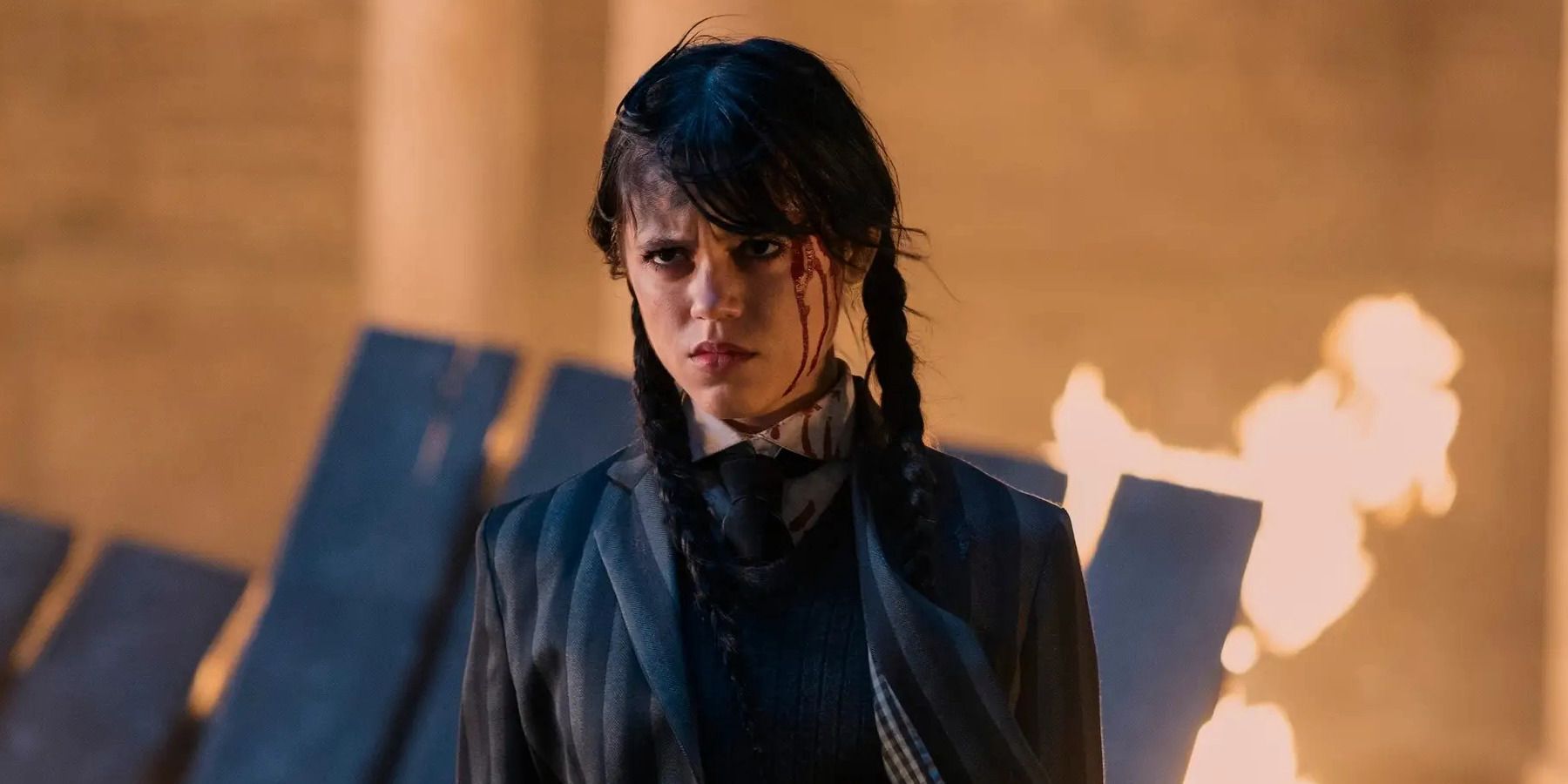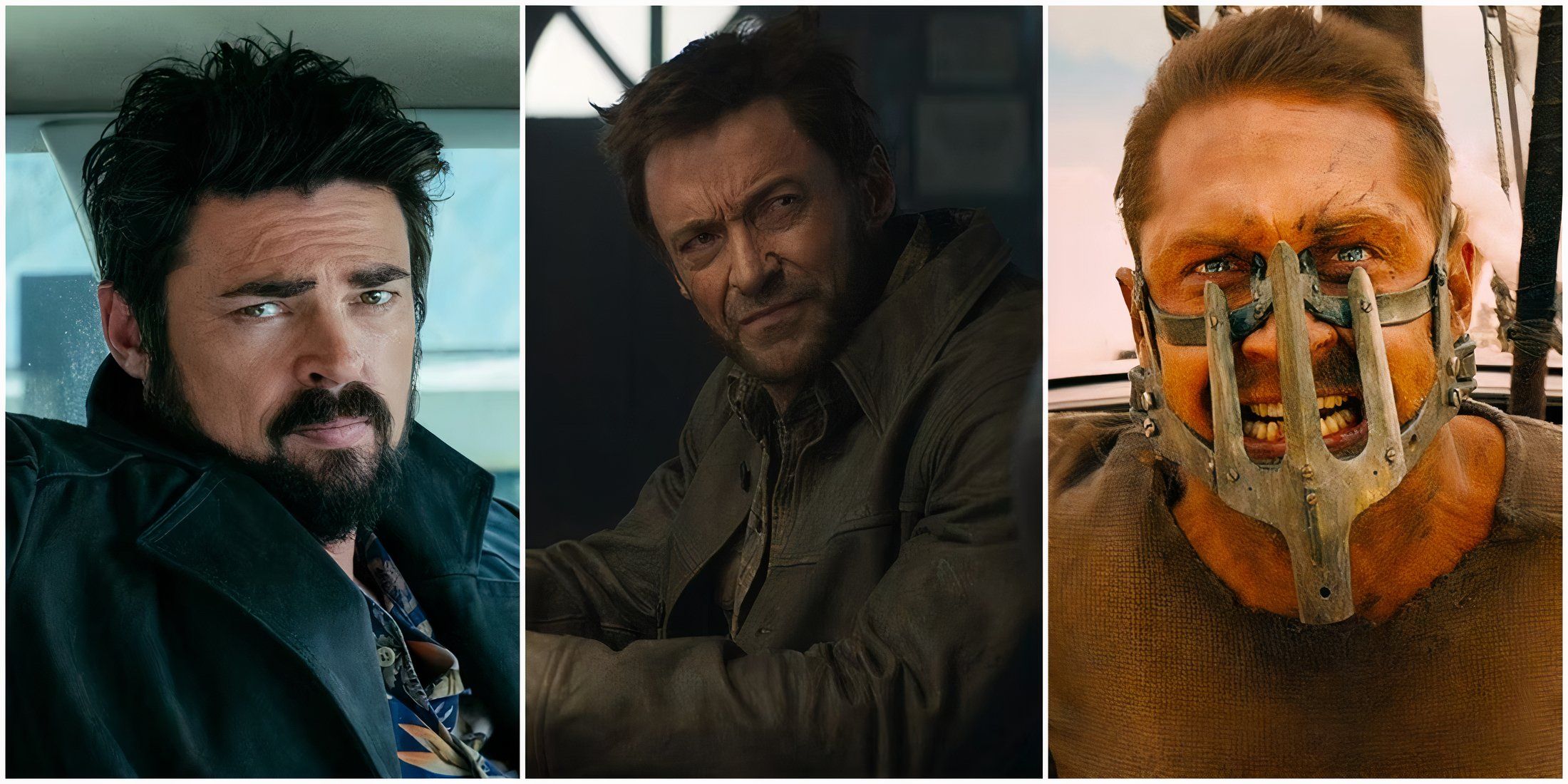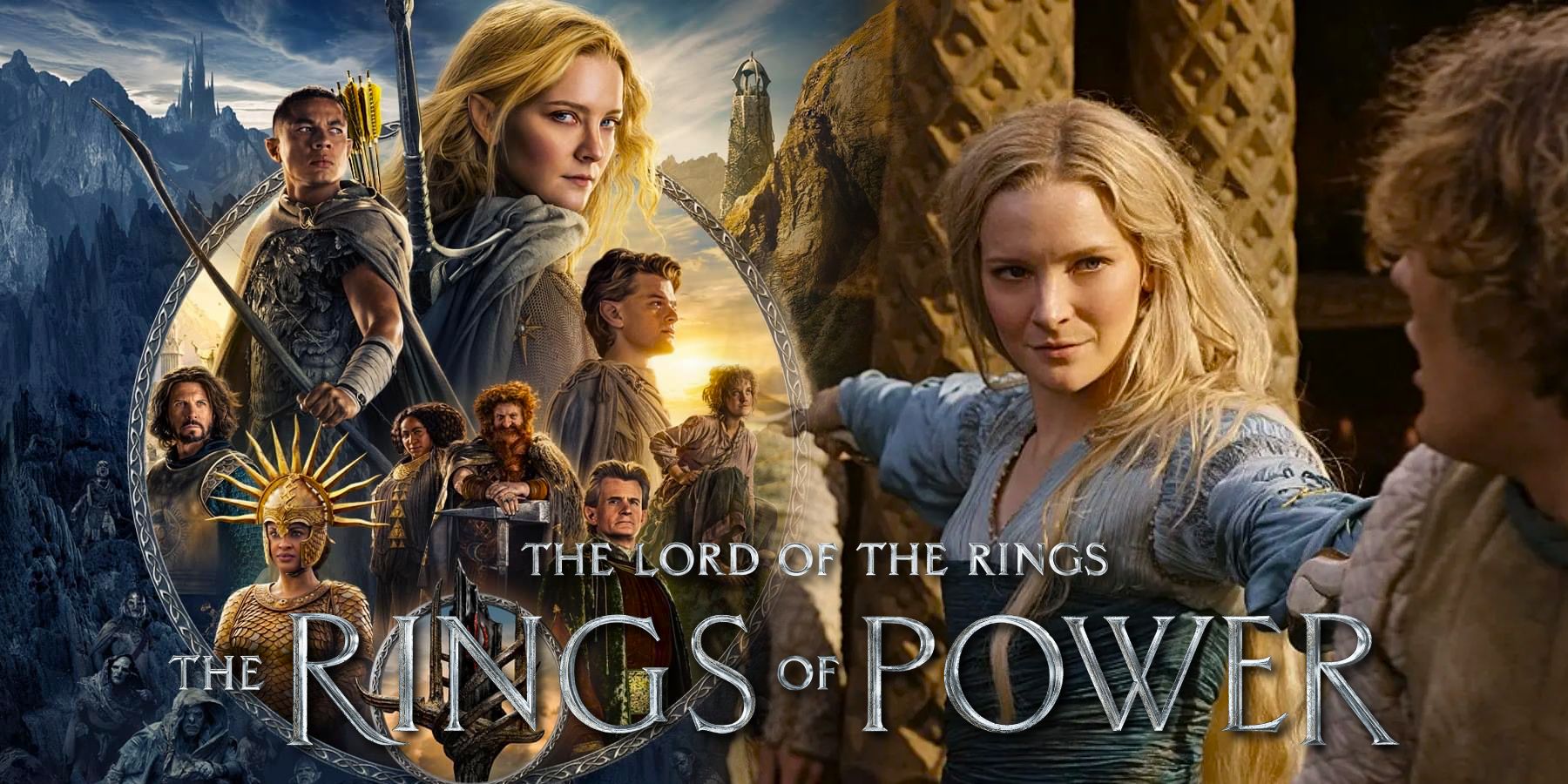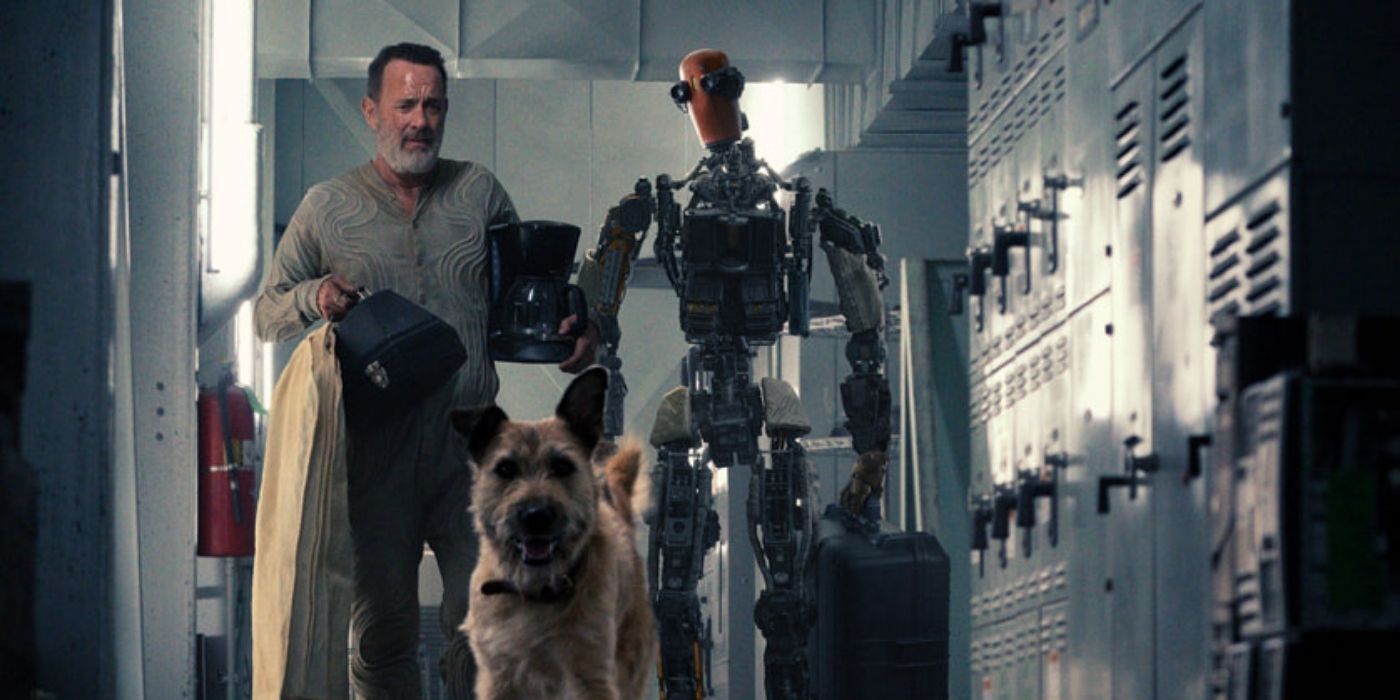Apple TV's Finch made a big splash on the streaming platform when it premiered towards the end of last year. The heartwarming —yet high-tension — flick is beefed up by its impressive cast and crew. Stepping in the play the title role is notable actor Tom Hanks and voicing his clumsy robot is X-Men: First Class's Caleb Landry Jones. The masterminds behind the script were Ivor Powell and Craig Luck, two professionals who have familiarized themselves with the science fiction genre over their years of practice. Powell has worked on the set of Alien and Blade Runner, and Luck on the set of Netflix's Sense8.
Finch expertly sets a unique tone and pace, taking place ten years after an apocalyptic event rendered the Earth barren and unlivable. Hanks' character, Finch, is slowly ticking towards his death as the radiation fumes began to seep into his body and while he's been living under the radar with his dog named Goodyear, he becomes ready to accept his nearing fate.
This strong companionship motivates Finch to create an A.I. robot named Jeff who is trained to care for Goodyear in light of his failing health. The movie is guaranteed to tug on everybody's heartstrings as Jeff learns to navigate under Finch's tough love and pessimistic attitude, and has to win over Goodyear's trust along the way. Game ZXC had the opportunity to chat with Finch producers Kevin Misher, Jackie Levine, and Jack Rapke about the creation of the movie and its dark, alternate ending.
Game ZXC: What was your first impression when you read the script?
Kevin Misher: Well, I thought it was incredibly moving. And it has a singular idea that took a story and turned it on its head. The motivating reason for being in the world that you were experiencing, which you've experienced before, was this very special relationship between man and dog. The love for Goodyear that Finch has forces him to create something that is both unpredictable and unique. Those relationships felt wholly unique in a genre that we've experienced before, but never through the prism of these three relationships.
GR: Talk to me a bit about the post-production process.
Jackie Levine: We had an embarrassment of riches, quite honestly, in terms of footage. You may or may not have heard that there was a different ending that was scripted. I mean, it was always going to end at the Golden Gate Bridge, but in a slightly different way. It was this long, exciting process of figuring out what was the best ending and what felt the most organic to the story we were telling.
GR: You all came up with a beautiful ending to the movie. So really, kudos on that. Can you tell me a bit about the alternate ending and your decision to change it?
Levine: We definitely shot what I'll call the scripted ending, which was more of Jeff becoming a man in a way. It was post-Finch's death basically, and Jeff had to survive and take care of Goodyear. He encountered, at first, these really awful people who were living at a dog track, and he thought [they] would help the dog — who had been bitten by a snake and was wounded. It turned out that they were more cannibals, like eating these dogs to survive. They tried to take the dog and he [Jeff] emerged from that situation as this powerful man-superhero-robot.
Then he goes on a quest to get the dog help and lands at this settlement of people that had survived out West. At first, they didn't really want him to be there, but they were willing to help the dog and then allowed him to stay there. Then they made their way to the Golden Gate Bridge. In the process of editing and test screening, I think we ended up doing two test screenings before everything was shut down, people felt like the movie was over after Tom Hanks dies.
GR: How did you balance the reality and the CGI aspects of Jeff?
Jack Rapke: We had Caleb Landry Jones on the set all the time, reacting in real-time. He's talking to Tom [Hanks]. So, you have two human beings reacting to one another. That gave us real confidence that the Jeff character had a performance art to him that's not done by animators. That's done by an actor.
I've dealt with this art form for many years, starting with Polar Express, which Tom Hanks was in. That was the first time that we played with performance capture, if you will. It has evolved night and day since.
GR: What were you looking for in the audition room when you were casting Jeff? And what drew you to Caleb's performance?
Misher: We were initially looking for someone who was robotic, but also had a sense of humor. And that can also be childlike because it was like he [Jeff] was being born and raised by Finch. Caleb is really the type of actor where you don't always know what you're going to get. There was an unexpected nature to his performance and to the way that he embodied this character. It was so exciting and just kept you on your toes. It was undeniable that he was just going to be the most interesting, unique, and fun Jeff that we could cast. It was pretty obvious that he needed to be the one.
Finch is currently streaming on Apple TV+.





